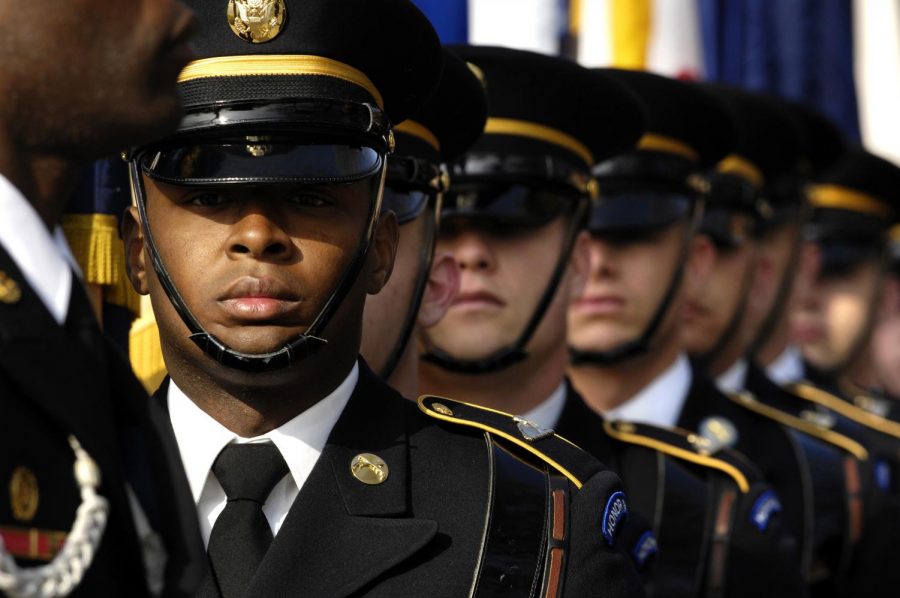Toxic masculinity keeps veterans from reaching out
Female medic explains stigma against asking for mental health help as service member
The lack of expression and emotion in toxically masculine cultures keeps many service members from admitting the mental health struggles they face.
January 31, 2018
Depression and suicide are recognized problems that plagues service members. An average of six veterans die from self-inflicted harm each day, according to the Department of Veteran Affairs.
The military is a toxically masculine culture, filled with traditional male behaviors that make it hard to ask for help. The best way to combat these mental health issues is to break down the stigma attached to talking about weaknesses.
It often takes service members years to feel comfortable speaking out about PTSD and thoughts of suicide. But multiple programs exist to encourage soldiers to seek help with their mental health.
Curtis Fletcher has witnessed firsthand various mental health issues in the Marine Corps. Fletcher is a student veteran at WSU who served four years of active duty service as an infantry marine.
“When I was over in Okinawa, we had a lot of Dear John letters where people were breaking up with you,” Fletcher said. “A lot of guys take that differently. One guy was like, ‘We can work it out. We can still do this.’ His ex-wife sent him a picture of her with another guy. That’s when he [killed himself].”
Experiences like this showcase just how difficult an environment the military can be for a service member’s mental health. Another service member, who wishes to remain unnamed, shared their experience with suicide in the military.
“A guy who I went to boot camp with … I got the text that he had done it last week,” they said.
High-stress environments mixed with a masculine culture of dominance create a situation in which soldiers are stigmatized for needing help.
As a female medic who has served just under six years in the Army Reserves, I have watched many of my soldiers fall under the hand of toxic masculinity.
Last year I sat in an empty room with a fellow soldier, watching him break down as forceful sobs shook his body. He was planning on killing himself that weekend, leaving his four daughters and wife behind. The bills had become too much, and his will to live was breaking.
“How can I be the man of the house if I can’t even provide for them?” he said, trying to stifle the tears.
This soldier’s story echoes those of many service members. He didn’t look into financial aid programs because of the shame attached to admitting he needed help. He would rather die than admit that he could not handle his situation.
Uriel Bermoy, a WSU student, served four years as an infantryman in the Marines. As a squad leader, he witnessed many soldiers under his care fall into these same patterns.
“The thing is, especially in the infantry, your job is to kill and to die,” Bermoy said. “If you can’t handle your own shit, who is going to want you at their back?”
All three service members maintain that help is available to anyone who desires it, although not all veterans take advantage of it. Programs for alcoholism, depression, financial difficulties and suicidal thoughts all exist in our military for any member who seeks help.
“The problem isn’t access to them,” Bermoy said. “The problem is being willing to say that you have a problem. My brother died, and I was f—ed up. I didn’t talk to anyone about it for a year. Once I did, it took another year to really talk to someone, and even then, it wasn’t a professional.”
Veterans need to talk about these struggles. Education and support may be the biggest aids in the fight against the stigma of showing weakness. We have a serious problem among our military members, and silence will not save the lives of those who are hurting.
Admitting that you have a problem is not weak. Asking for help does not mean that you are less of a soldier. Service members can show emotions other than anger and still be influential leaders among their troops.
If you are a service member who is ready to ask for help, please contact the Veterans Center (509) 335-1234 or email [email protected].





















